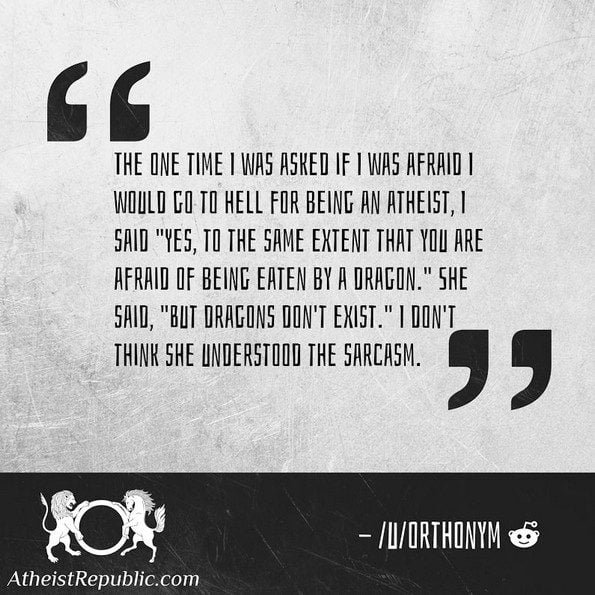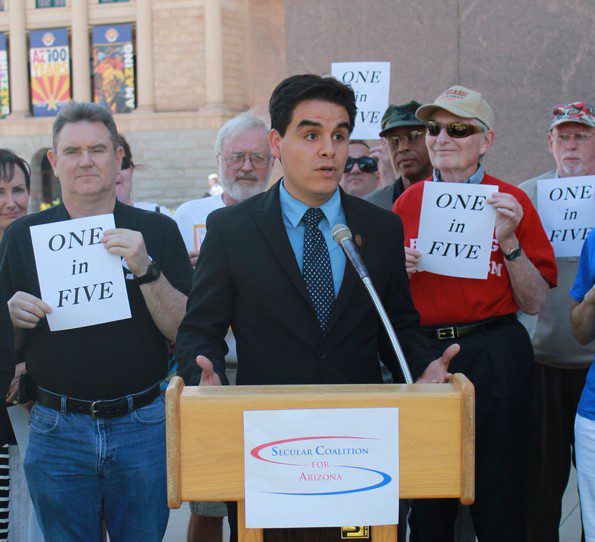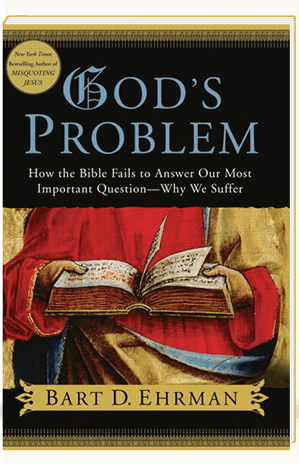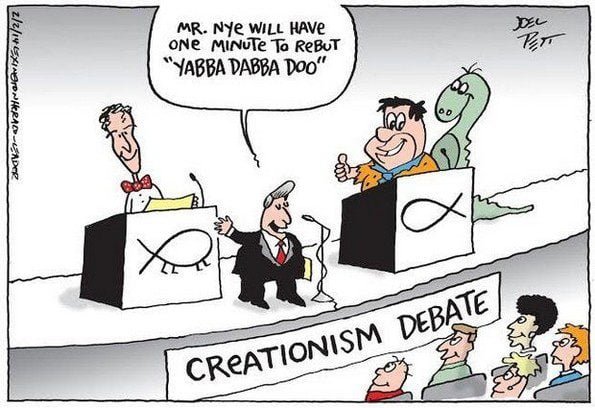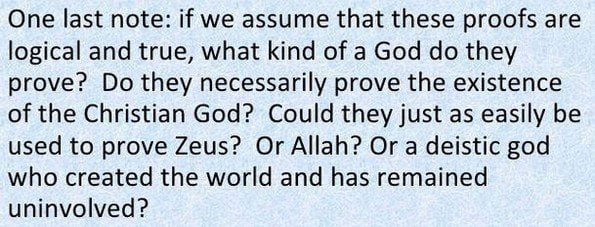
Every day, without fail, I spend time reading numerous Evangelical Christian blogs and websites. Doing so allows me to stay informed about what goes on in the insane asylum. One such blog is the Isaiah 53:5 Project — a site I have used as blog fodder numerous times before. Today, a man by the name of James wrote a post titled, Not Enough Evidence God. (link no longer active) I thought, oh boy, this ought to be good.
James starts out by saying that this post is a repost of one of the blog’s most-read articles. He goes on to say “If you think there is no evidence to support Christianity, you may want to think again. I thought, okay, James is going to present evidence that supports the existence of the Christian God. Perhaps he is even going to present evidence to support a virgin having a baby, dead people coming back to life, and a man walking through walls. Sadly, James left me quite disappointed. No cigarette after reading this post.
James quotes 19th-century atheist Bertrand Russell’s response to the question, What will you say some day when God asks you, why didn’t you believe in me? Russell replied: “I would say, ‘Not enough evidence, God! Not enough evidence!’” Again, James raises the issue of evidence. I thought, here it comes. Finally, an Evangelical is going to give the evidences for the existence of the Evangelical version of the Christian God. Once again, James leaves me disappointed.
According to James, Russell’s answer is, and I quote, “loaded with problems.” I thought, okay, loaded with problems. James is now going to unpack his powerful arsenal of proofs and slay the mighty dragon of atheism. My body tingled with excitement as I pondered what was coming next. I thought, oh how I want to be a Christian again. Finally, someone is going to give me sufficient reasons to believe the Christian narrative. And, just like that, James, ever the tease, left me, yet again, disappointed.
After James’ coitus-like build-up, I was expecting a rousing defense of Christianity. Instead, James showed that he was a virgin and in but a few moments the deed was done. The only evidence James gave for the existence of the Christian God was the tired, worn out Evangelical trope, the Bible says __________. That’s right — for all his talk about evidence, James gives none. Lest you doubt that I am accurately reporting James’ magnum opus, here is exactly what he had to say:
Problem number one is what God Himself has to say. I don’t think He minces any words here. [emphasis added]
“For since the creation of the world God’s invisible qualities–his eternal power and divine nature–have been clearly seen, being understood from what has been made, so that people are without excuse.”
– Romans 1:20
…without excuse
…without excuse
…without excuse
Let that sink in a minute then ask yourself if Russell is making the arrogant mistake of blaming his lack of belief on the failure of a divine being who can do no wrong and gave humanity no excuse.
Are you making the same mistake Russell did? If so, how do you think the conversation at judgment will go?
You: “Not enough evidence, God! Not enough evidence!”
God: “…without excuse.”
Seems fairly cut and dry to me.
“Do you see a man who is wise in his own eyes? There is more hope for a fool than for him.”
– Proverbs 26:12
That’s it. According to James, the Bible says God reveals himself through creation, and that by looking at creation, humans know that God exists. Those who look at creation and do not see God are deliberately ignoring what is plain for all to see. Thus, those who refuse to acknowledge God are without excuse. As I read this, I thought, That’s it, James? Come on, surely you have more evidence for God than this?
I wonder if James has ever had someone actually challenge his beliefs? According to a comment he left on his post, James was, at one time, an atheist (a claim I would love to see him support). (Please read, Dear Christians: The Word “Atheist” is Not Shorthand for Your Lives Before Jesus and I Was an Atheist Like You Before I Found Jesus.) James’ one-point evidence for the existence of the Evangelical God can be easily and quickly refuted.
When someone uses Romans 1:18-21 as “proof” for the existence of God, I quickly grant them their assertion. Fine, I say. I accept your claim that creation reveals to everyone the existence of God. Usually, Evangelicals are taken aback when I do this, but they fail to see that what I am really doing is setting a trap.
After I admit that someone could look at creation and conclude God exists, I then ask, which God? The Evangelical usually quickly responds with, why the one true God, the Christian God. I then ask them, what is there in creation that tells anyone that the Christian God created everything? What proof is there for the God of the Christian Bible being the creator God? What is the bridge that gets us from creation revealing that there is A GOD to that God being THE GOD of Evangelical Christianity? There is nothing in the universe that shows the Evangelical God created everything. At best, creation testifies to there being some sort of deistic God. When I look at the stars at night, I can easily understand how someone might conclude that a deity of some sort created the universe. However, I see no evidence in the sky that tells that this God is the Evangelical God.
Eventually, Evangelicals will finally say, the Bible says ________________. And just like that we are right back to where we started. James’ non-evidence evidence falls flat on its face because the real issue is not what the universe tells us, but whether the Bible is what Evangelicals claim it is. I have long argued that the best way to disabuse Evangelicals of their Fundamentalists beliefs is to attack the foundation of those beliefs — the Bible. And not just the Bible, but their interpretation of the Biblical text. The goal should be to convince Evangelicals that the Bible is not what they think it is. Specifically, Evangelicals need to be shown that the Bible is NOT an inspired, inerrant, infallible text.
The biggest problem is that Evangelicals have been brainwashed into rejecting out of hand any claim that casts doubt on the veracity and authority of the Bible. When the mythical Satan tempted the mythical Adam and Eve in the mythical Garden of Eden, he said to them, Yea, hath God said (Yes, even Satan uses King James English)? Evangelicals see challenges to the accuracy and truthfulness of the Bible as modern-day equivalents of Yea, hath God said? Thus, it becomes very difficult to breach the inerrancy wall that surrounds Evangelical minds. Not impossible, but hard. This is why when Evangelicals attempt to argue with me about something I wrote, I ask them, have you ever read any of Dr. Bart Ehrman’s books? (Please check out our bookstore for a list of Ehrman’s books.) I have yet to have an Evangelical answer yes. Often, they will say they have read reviews of his books or Dr. so-and-so’s take-down of the agnostic Bart Ehrman’s books. When pressed to read several of Ehrman’s books, most Evangelicals reply, I don’t need to. I have the Bible. And therein lies the problem. Until Evangelicals are willing to at least entertain thoughts of the Bible not being what they claim it is, there is no hope for them. If Evangelicals are willing to honestly and studiously read Ehrman’s books, I am confident that they will be disabused of the notion that the Bible is an inspired, inerrant, infallible text. Until the Jameses of the world are willing to wrestle with the history, nature, and complexity of the Biblical text, there is little hope of delivering them from their Fundamentalist beliefs. While I think someone can remain a Christian after reading Ehrman’s books, it is impossible for them to remain an Evangelical. The evidence provided by Ehrman is so overwhelming that those saying they are still Evangelical after reading his books are living in a state of denial.


